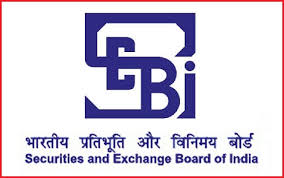+91-11-46628866 | info@compad.in Schedule a Meeting →

By Debanis Roy Chowdhury, Associate, COMPAD
In a major boost to tech start-ups keen on listing themselves on Indian bourses, the SEBI approved a framework for issuance of shares with differential voting rights (DVR).
The major takeaways are:
- The company has to comply with the SEBI (ICDR) Regulations, 2018.
- Restricted only to new technology firms that are yet to get listed and are in the areas of IT, IPR, data analytics, bio-technology or nano-technology.
- Superior rights shares to have voting rights in the ratio of minimum 2:1 and a maximum of 10:1 compared to ordinary shares.
- Shareholders with superior rights should be a part of promoter groups having collective net worth of not more than Rs 500 crore.
- The total voting rights of the superior shareholders (including ordinary shareholders), post listing shall not exceed 74%.
- Companies having superior shareholders shall be subjected to enhanced corporate governance.
- Coat-tail provisions
- Time based sunset clauses where the shares with superior voting rights shall be converted to ordinary shares on the fifth anniversary of listing and can be extended once by five years, after passing a resolution. Event based sunset clauses where shares with superior voting rights on the occurrence of certain events.
- Existing listed companies shall not be allowed to issue fractional rights shares.
The new norms were targeted at helping technology start-ups with asset-light business models, where promoters or founders are key to the company's success and may need to retain controlling powers. SEBI widened the definition of encumbrance, and said it would include any restrictions on free and marketable title to shares, pledge, lien, negative lien, non-disposable undertaking, and covenant. It also increased disclosure requirements on such shares by promoters.
The change in DVR and having a dual-class share structure will help founders to maintain close to majority control of the company even with minority stake. This method is prevalent in China, USA, Singapore, Hong Kong. Tech behemoths like Facebook and Alibaba use this model as well.
Advantages:
- Helps Founders to make bold bets for the expansion of their Start-up.
- Helps to focus on long term opportunities.
- India’s most valuable companies can list on domestic stock exchanges.
Constraints:
- Only companies with track record of profits for three years can issue such shares.
- Such shares cannot be over 26% of the total shares issued.